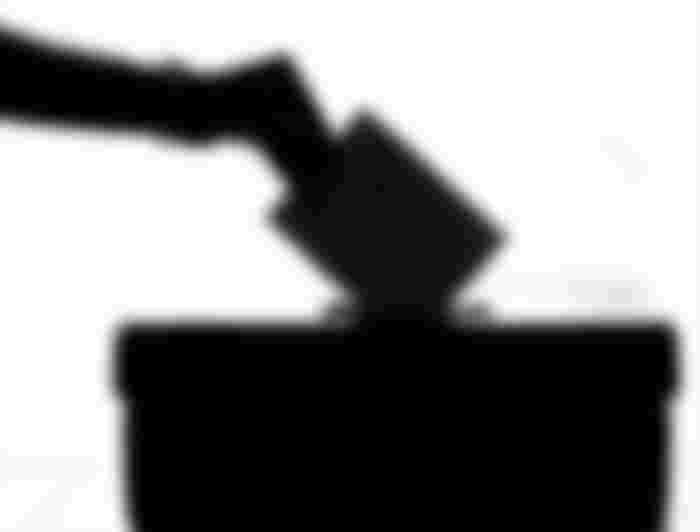Democracy is one of the oldest systems of government in the world. As a system of government, it was first practiced in the Ancient Greek.
Greek democracy is regarded as a different form from the one we practice today. The one practiced in ancient Greece and the one we practice today is a matter of difference in the decision making and representation.
Democracy is regarded as a system that support the majority. This, perhaps, explains its massive adoption.
Democracy pride itself under one theme which is 'equal right of every citizen'. This equality in democratic settings is boosted by the clamour for separation of powers.
The word democracy is from Greek words 'demo' (people) and 'Kratia' (rule). Democracy means rule of the people. The popular and generally acceptable definition of democracy is 'government of the people, by the people and for the people'.
People are always in the centre when democracy is being discussed. But whether people are actually considered in decision making or whether their welfare are of paramount interest in law making is what we shall try to ask.
Democracy can be divided into two types. The direct and indirect/representative democracy.
In Athens, Greece, democracy practiced there was a direct democracy. A direct system of democracy allows everyone to come together in decision making.
Indirect democracy is the representative system of democracy which we practice today in our societies. As a system, it allows people to choose representatives/individuals to represent them in decision making.
These representatives are chosen via elections. The winner of an election is the representative with most votes.
Since everybody cannot come together in decision making, considering the population we have in different communities today, representative system of democracy serves as the alternative.
Plato is known as a good critic of democracy as a system of government. For him, democracy is nothing but the 'rule of the mob'. Plato wonder how everybody will come together and make decision. For him, a system like this will lead to tyranny of the majority. Tyranny of the majority is a practice where different laws determines the actions to be taken on same crime, issue or situation.

Some of The Problems of Democracy
Democracy follows a documented constitution which determines what is good or bad, what is legal or illegal.
This enacted laws are regarded as the people's constitution. To amend this constitution, there as some legislative procedures that must be followed. After amendment, its needs government approval to become law. In this process, time is never our friend. Process of enacting, hearing, and implementation consume time.
Laws in democracy appears to be cast in stones. There are some laws in this constitution that predate many of us obeying them. These laws appears to be rigid. In reality, they should be easily amendable to conform with present reality.
The crux and preachings of democracy are freedom of speech, freedom of the press, freedom of association, freedom of worship, freedom to protest, etc. These and many other freedoms are shadow of themselves in today's democratic settings.
Another problem in democratic systems is the institution of lower and upper chambers. We have House of Assembly and House of Representatives. They make laws based on yeas and nays. This is the first problem i have with democracy. The majority with any of the terms (yeas or nays) determines whether a bill is passed into law or not however brilliant, amazing, wonderful or logical the bill might be.
A good question one could ask (since democracy centres on the people) is, are these yeas and nays done with the interest of the people at heart? Your guess is as good as mine.

My personal view on democracy
While democracy place much emphasis on majority, i don't believe it's a system of the majority. In reality, i believe it is a government of the minority and few rich people like 'Aristocracy'.
As Karl Marx argued, the material condition of every man have impact on their thinking. From what i have seen about democracy and as regard to what is obtainable in Nigeria, i do not believe the system is truly for the majority.
Let's look at it together to see if i have a good point to reject democracy or not.
In today's system of representative democracy, some countries have multi-party system while others (like USA) have two-party system.
So these parties have representatives in them, these representatives would campaign for election in aspiration that they are elected into political offices.
To participate in elections as representative or voter, you must meet certain criteria. Be a citizen, have voter's card, be a residence in the area you registered to be able to cast your vote, be above 18 years.
Now, let me pick my main point from the criteria i listed above.
These criteria, with no doubt already deny 15-17 years the opportunity to take part in an election because the law believe they can't think independently or make rational decision that 18 years old can make.
While those who are below 18 are removed due to their age (and nothing more), the one above 18 are still marginalised!
Let's see a scenario and how this play out in reality.
Let's assume that those with voter's cards are eligible population, it follows that certain percentage (17 years downward) are already denied this opportunity to participate. Let's assume they are 10% out of the 100% of the total population. So logically, we are left with 90%. Out of this 90% that meet the criteria, 5% would not cast their vote due to unforseen circumstances like sickness, death before or during elections, lost of the card, etc. So we are left with 85%. Out of this 85%, at least 5% of the votes would be null and void. This is a popular scenario in a democratic election. We are then left with 80%. So this 80% is what would be shared to determine the majority. Now where we have two-party system, the representative with 41% at least wins the elections. In cases like Nigeria where we have multi-party system, the party with at least 30% or a little more or less wins the elections. The remaining 39% in a two-party system belong to the loser. In multi-party system, the remaining 50% or little more or less is shared among the other parties - losers.
It is safe to say 41% or 30% in both cases LOGICALLY mean the 'majority'!
Let's deduct that from the 100% we started with, it means 59% and 70% are logically the minority if we are to go by the reality of what played out after the elections. Then who are the 'majority' that democracy talk about?
How is higher number the losers and lower number the winners, yet we say it is a system of the majority?
'People' are the centre but we didn't know they mean minority. Number determines the winner but they didn't tell us what they mean by number. The highest or the lowest?
From the above, i believe democracy represent the few minority who choose a representative. The 'majority' is just a word to sell democracy to the people.
Thanks for your time.

